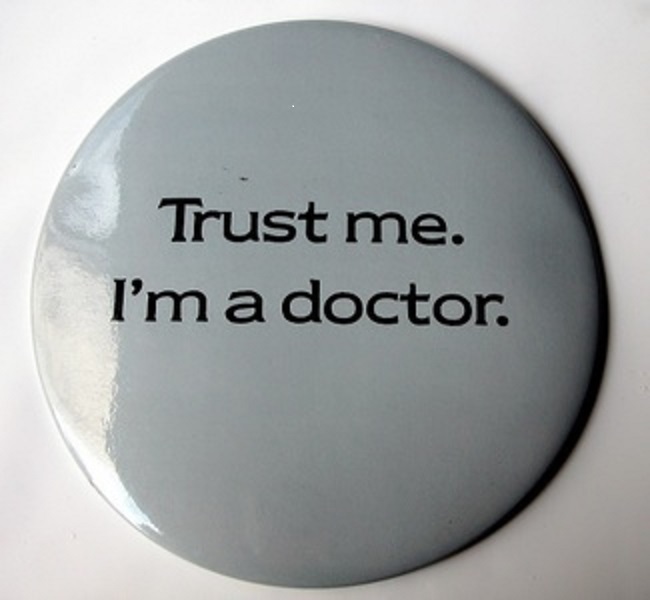Gynecologic surgeries, namely hysterectomy (uterus removal), oophorectomy (ovary removal) and C-sections, are the top overused procedures in the U.S. Only 10%, at most, of hysterectomies (and probably fewer oophorectomies) are considered necessary as cited in the “Hysterectomy Facts” section of this article. The 90% “elective” rate would indicate that these surgeries are “restorative” or at least harmless, but medical literature and women’s experiences prove otherwise.
A few years ago, I began writing for Hormones Matter about the consequences of hysterectomy and oophorectomy. Year after year, these posts generate tens of thousands of views and hundreds of comments. The comments inevitably follow the same pattern. The surgery was recommended or sometimes forced on a woman for reasons that are not typically medically warranted suggesting that many gynecologists use unethical and fraudulent tactics, such as those discussed here and here.
Worse yet, after the surgery any negative effects are dismissed by the doctors as unrelated or untreatable. This leaves women fending for themselves. With the internet, she finds us and discussions ensue. We thought it was time to highlight those comments, to show what women are saying about their experiences. For the next several weeks, we’ll be re-publishing some of the most telling stories of declining health and profound feelings of betrayal after female organ removal.
Deceit and Bullying
The following comments are the most striking examples of “fraud in the inducement” which is defined as “the use of deceit or trick to cause someone to act to his/her disadvantage” as defined here. This definition goes on to say that “The heart of this type of fraud is misleading the other party as to the facts upon which he/she will base his/her decision to act.” My article here explores the con of female organ removal. The HERS Foundation wrote a blog on “fraud in the inducement” which can be found here and has 100 comments. Here is my personal story of how I was scammed. Other women who’ve written for Hormones Matter have also been given hysterectomies without (informed) consent. Their stories can be found here, here and here.
The first comment listed below is the most glaring example of fraud, as the doctor fabricated the woman’s fibroids and was deceitful about her ovarian cyst. Thankfully, the woman sensed that she was being played and did not fall into his trap. It’s so important that women get their medical records and do their own research. But, unfortunately, medical records cannot always be trusted either so we can’t count on them to protect us from fraudulent tactics as evidenced in this first comment. This woman’s gynecologist lied in her medical records to protect himself. My medical records from both my gynecologist and my gyn oncologist contained lies as did those of many women with whom I’ve connected.
Donna writes:
“When I was 41, I had a couple of irregular periods but otherwise I had never had any gynecological problems…. So, I went to an OB/GYN who was VERY well known and popular in my city… he examined me and said my uterus was the size of someone at 3 mos. pregnancy. A couple of days later, I was back in his office to discuss the results. As soon as he walked in, the first words out of his mouth were, “You need a hysterectomy.” I was taken aback, but thought to myself, okay–maybe. I said, “Is it fibroids?” And he said, “Yes! Multiple fibroids. And a cyst on your ovary.” I still couldn’t really believe it, but went on with the visit. He asked for permission to “go ahead and take out my ovaries if during surgery he sees that they’re bad.” What? I said, “okay—I guess.” But I wasn’t really buying all of this. He told me to plan on “a nice six-week vacation,” and he proceeded to set up the surgery for the following Wednesday, just five days from then. I left being very skeptical…So I called his office the next day and told the nurse that I was not going to have the surgery and the doctor called back almost immediately asking why. I asked him some questions (based on my reading) that he should know: What kind of cyst was on my ovary? I had read that most women have functional cysts on their ovaries during every menstrual cycle, then they dissipate. The doctor can tell what kind of cyst it is on the sonogram. What options are there besides surgery? He was agitated and said he didn’t know what kind of cyst it was until he got in there (lie) and “there are no other options”! (another lie). He said that if I wanted a second opinion, then go get one. So I did. I went to… saline sonogram of my uterus, which would give an even better picture. Imagine my surprise when the results were NO FIBROIDS whatsoever! And, it was indeed a functional cyst. The former doctor outright lied about the whole thing. I wrote him a letter and told him my results that I had no fibroids and to let him know that I know he lied. I asked for my medical records, and on them on the date of my exam, he had written his recommendation for surgery and “all options discussed with patient.” Another horrible lie. Unfortunately, just about every person I know who goes to him has had a hysterectomy. And none of them had cancer or anything very serious. It’s chilling, too, to hear them tell the story because the doctor uses the same phrases that he used on me. That was 15 years ago; today I’m 56 and have gone through menopause naturally, and I never had any other issues. It was simply irregular periods in the beginning perimenopause stage. My doctor at… told me this. The former doctor never once mentioned that it could be perimenopause. I’m hoping more women will question and stand up against a diagnosis that just doesn’t seem right or make sense, just because a doctor is telling them it’s so. Always get a second or even third opinion!”
Marie writes:
“This was never what I wanted. I went for medical attention…. After an MRI, the next day my family and I were told that I had to have an emergency hysterectomy and possibly my colon…. PLEASE help STOP this modernized form of sterilization of woman!!!!”
From Marlo:
“Oh wow. I feel so duped. I had no idea about all these problems after having a total hysterectomy…. I thought everything would be so much better after this. That is what my new OBGYN made me feel like.”
Rachel:
“I had numerous promises and scare tactic talk used on me. I would give anything to not have the surgery. I am slowly dying from… and no doctor will help me.”
Jacqueline:
“I had the same disgusting lied to procedure done to me two years ago. Why do doctors castrate woman. Why. It makes no sense at all. Why do they cut out our sex organs? Why do they disable us?… Every woman who has this done has been harmed and brutilized…. Even rapists are treated better.”
Donna:
“I am truly horrified to read these stories…. They all say the same thing (especially if you’re over 40), that “you don’t need your reproductive organs anymore if you’re done having children.” This is an absolute lie… the doctors are very intimidating and we find it hard to question what should be their expert opinion that’s in the patient’s best interests (not their wallet’s).
Robin:
“I refused to sign a consent for a ‘complete’ hysterectomy and was promptly knocked out so one could be performed regardless of what I needed or wanted or even agreed to! So, I knew immediately upon waking up in recovery what had been done to me…. I didn’t begin to understand how drastically my life would change from that moment on….”
Amanda:
“I too was told more likely than not you have cancer. …gyns are so quick to just to yank everything out…. Additionally, they don’t fully explain options nor explain how serious the surgery will be….”
Shanda:
“I was told I would feel better… but unfortunately… I do not… the worse I have ever felt….”
Elissa:
“I too had a hysterectomy and was told how great I would feel.”
Sunny:
“I had robotic Laproscopic hysterectomy on 10/15/15…. I was told “you will feel like a new person after the hysterectomy.” They were so wrong! I feel 10 times worse…!”
Elaine:
“Surgeon basically told me I had to have a hysterectomy, I had gone through menopause so I was not using it anyway.… I feel I was not thoroughly informed and this surgery was the biggest mistake!”
SG:
“… it is too late for me.… I had a hysterectomy 4 years ago… the gyno decided it was necessary… and later told me he found a few nasties down there… I never received any pathology results to indicate this….”
Rebecca:
“Was advised the only option was a total hysterectomy had it on 6th February 2014.… I can’t cope anymore.”
KME:
“Looking back I remember my OB matter of factly telling me that surgery was really my only option and cheerfully started to schedule the procedure right then and there during the initial exam.”
Elissa:
“I too had a hysterectomy and was told how great I would feel… my bones hurt! My whole body hurts! I have more spider veins in my legs now than I remember my grandma having when she was 70.”
Convenient Omissions
More frequently than not, it appears physicians fail to inform women of the potential side effects.
F D:
“I feel very angry that I was never told of these very debilitating side effects.”
Gail:
“My life changed the day I went to a women doctor who did not disclose everything when she recommended a total hysterectomy for me due to a bladder prolapse.… Doctors seem ill equipped or unwilling to spend time to explain thoroughly the consequences of having your lower organs removed. Somebody do something!!!!!!!!!…please.”
Nicole:
“I wish I would have known about all of this prior to the surgery so I could have passed on having a complete hysterectomy….”
Sharon H:
“Oh how I wish I knew all this before my surgery. I would NEVER have had it done.…”
Irene:
“I was never advised about the negative. MY BIGGEST REGRET IN LIFE IS HAVING This TOTAL HYSTERECTOMY.”
Theresa:
“Like others my gynecologist never explained all the side symptoms to me. Had I known I would’ve just removed my fibroids ONLY.”
Elizabeth:
“I had a partial hysterectomy several years ago…. If I had known all this before the hysterectomy I wouldn’t have had it.”
Nora:
“I had a TAH in December. The surgery shortened my vaginal canal by 3 inches. After 27 years of marriage I am unable to have sex. I feel castrated. Can this be reversed? I never knew this could happen.”
Pat:
“I had total hysterectomy 7 years ago due to fibroids. I still regret having it…. I feel duped because the doctors never mentioned the sex disadvantage. I wish someone had told me.”
S M:
“Can’t believe what I have read – I match your situation entirely. I feel so let down by my consultant, these changes to my sexuality were never suggested to me…. I feel numb, panic stricken and so very sad.”
KME:
“I was never told about ANY possible adverse short or long term complications from the surgery, especially long term anatomical changes. Nor was I offered any other choice than the surgery or an unwieldy and painfully uncomfortable pessary….”
Barracuda:
“Oh and you’re totally right about patients not being informed, I went in blind! Went home blind too. I had a short, vague pamphlet that didn’t really answer anything directly about what to expect….”
Julia:
“Again, none of the potential problems, nerve damage and prolapse are not mentioned in the usual hysterectomy surgical blurb. I asked specifically about hormones etc and was assured my remaining ovary would be doing the work of both but in the off chance it didn’t hrt would do the job. Of course I know now that one form of hormone can never replace the delicate balance of multiple hormones….”
Marlo:
“I feel like I am 90 years old when I sit for a while and then get up I cant even walk because the hip joint pain is so bad…. I did not have any idea about the physical changes that are now going to take place.”
Sharonj:
“So I trusted my Doctor and didn’t search on the internet for the side effects of a hysterectomy. I wish I would have… I wouldn’t be where I am today. I guess that means I’m twice the moron.”
Yvonne:
“I came across [sic] this site while once again researching all my post op problems from my recent hysterectomy…. I wish I would have know before how I was going to feel.”
Dismissal of After Effects
When women question their doctors before surgery about various negative effects, they are typically told that the negatives they’ve heard or read about are “nonsense” or rare. When they experience these after surgery, they are typically dismissed as unrelated.
Sharonj:
“My doctor and her nurses told me to avoid the internet so I wouldn’t be scared with any horror stories. The thing is, 4 years post-op and my story is darn near identical to the ones I found here. The endometriosis I had my whole life (I’m now 46) was a cake walk compared to the hell I’m in now!”
Sunny:
“your symptoms do not sound like they are from your surgery… maybe you should see a neurologist.”
DM:
“This is a fantastic piece. So much detail and so much supporting data…. Only wish I’d seen it before my surgery… though I suspect my doctor would’ve told me it was all nonsense.”
Marie:
“I have severe pain I am dealing with, especially on my spinal cord. The surgeon claims it has NOTHING to do with the surgery, but I did NOT have it prior to the surgery. PLEASE help STOP this modernized form of sterilization of woman!!!!”
Post-Surgery Medical Abandonment
Consistently, women express that once after effects emerge post-surgery, their doctors are less than helpful.
Sunny:
“My surgery date was 10/15/15. Felt really great up until last week of January 2016…. Noticed drastic, sudden sharp pain from my lower back shooting around the sacrum, up into my spine, all the way to my neck and head. I am in so much pain all day everyday and nothing helps whatsoever. Naturally my GYN got his money out of me and conveniently he is all booked and per his nurse… ‘your symptoms do not sound like they are from your surgery in October 2015– maybe you should see a neurologist.’”
WS:
“It became clear very quickly that I had become a different person. I felt like my HEART and SOUL were removed in that operating room. Despite being prescribed estrogen, everything fell apart. I quickly spiraled into a suicidal depression… with a lengthy list of symptoms of hormonal deficiency and endocrine havoc…. Yet a call to my gynecologist/surgeon resulted in being told ‘we’ve never heard of those problems before’ followed by the phone being hung up. He’d now abandoned me as his patient despite having been under his care for 20 years….”
Suz:
“… Doctors don’t seem to want to help and didn’t explain all this beforehand.’
Rachel:
“I would give anything to not have the surgery. I am slowly dying from worse pelvic pain, new severe symptoms, adhesions and no doctor will help me.”
Robin:
“I contacted my gynecologist and told him. I begged him to help me…. I was told to find another doctor since I had so many problems.”
ATH:
“I went back to my obgyn (more than once) and was blown off and told pain was common and would go away on its own.”
When Will it End?
These surgeries have been largely unnecessary since their inception in the late 1800’s. There have been efforts by various organizations as well as Congressional hearings, one in 1978 and one in 1993 but still the problem persists. About half of all women will end up having a hysterectomy. And 55% to 73% of them will also have a healthy ovary or ovaries removed. Those are shocking statistics! You can hear the desperation in some of the aforementioned comments. Unfortunately, our voices are also silenced on some of the hysterectomy forums such as the hysterectomy “sisters” site, the UK Patient.Info site and a Surgical Menopause site. The many women’s health organizations seem to only care about women’s “reproductive choice” (access to birth control and abortion). (They probably don’t want to alienate the gynecologists.) The following comment sums it up:
Someone Who Cares:
“After 40 years of enduring this “disabled” existence, it breaks my heart that no matter how many of us try to warn other women, in various ways, the number of these destructive surgeries continues to increase, not decrease.”
A complete list of my articles can be found here. The HERS Foundation is a good resource for understanding the life long functions of the female organs. It also has a lot of information about gynecologic conditions and treatment options. These two sites, Gyn Reform (especially the studies/citations link) and Ovaries for Life, are excellent resources about the gross overuse and harm of ovary removal or loss of ovarian function after hysterectomy.
We Need Your Help
More people than ever are reading Hormones Matter, a testament to the need for independent voices in health and medicine. We are not funded and accept limited advertising. Unlike many health sites, we don’t force you to purchase a subscription. We believe health information should be open to all. If you read Hormones Matter, like it, please help support it. Contribute now.
Yes, I would like to support Hormones Matter.
This article was first published on October 13, 2016.











